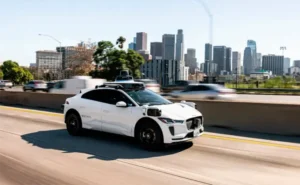This fall, a new debate is heating up in the U.S. after researchers from UC Berkeley published a study that questions how fair the American tax system really is.

The study looked at the tax bills of the 400 richest Americans — including Elon Musk, Jeff Bezos, and other billionaires. The results shocked many people:
- The ultra-rich pay about 24% of their income in taxes.
- The middle class pays around 30%.
- High–earning employees can pay up to 45%.
In other words, billionaires often pay less than doctors, engineers, or teachers who rely only on salaries.
Why Billionaires Pay Less
The difference comes from how income is taxed in the U.S.:
- Salaries — taxed up to 37%, plus Social Security contributions.
- Capital gains (profits from stocks, real estate, or other assets) — taxed up to 20%.
- Corporate taxes — officially 21%, but companies use deductions, loopholes, and even offshore strategies to pay less.
So, if you’re living off stock growth, your tax bill is often much lower than someone working a 9-to-5 job.
The 2017 Tax Reform Made It Worse
Economists say the real turning point was the 2017 tax reform.
- Corporate taxes dropped from 35% to 21%.
- Capital gains tax breaks stayed.
- Middle-class families saw little to no benefit.
As a result, billionaires saved billions, while ordinary workers barely noticed a difference.
How America Reacted
The report sparked a wave of discussions:
- Economists on forums in San Francisco and New York argued about whether the system is fair.
- Lawmakers in Congress are split: Democrats want higher taxes for the super-rich, Republicans warn it could hurt investment and innovation.
- Social media exploded with frustration. One popular comment: “The average American works two jobs while billionaires play by different rules.”
The Debate
Arguments for higher taxes on the rich:
- The wealthy rely on public infrastructure and should contribute more.
- The gap between rich and poor is growing.
- Extra money could go to schools, healthcare, and climate programs.
Arguments against:
- Billionaires create jobs and innovation. Higher taxes could slow growth.
- Capital gains taxes encourage investment. Raise them, and money may move offshore.
- The problem is government spending, not low billionaire taxes.
California at the Center
California is home to both America’s billionaires and the highest state taxes. Musk, Bezos, Page, and Zuckerberg all spend time here. At the same time, many California families struggle with housing costs and high living expenses.
That’s why this issue feels personal in the Golden State. People want to know: are tech giants like Google, Apple, Tesla, and Meta really paying their fair share?
What Could Change
UC Berkeley experts suggested possible reforms:
- Raise the capital gains tax closer to salary tax rates.
- Create a minimum tax for billionaires, so their effective rate isn’t lower than the middle class.
- Close offshore loopholes.
- Rework corporate tax breaks, leaving only those tied to green energy or public good.
What It Means for You
- Short term: No big changes yet — reforms take time.
- By 2027: If Congress acts, billionaires may see higher rates.
- Long term: Extra revenue could help schools, hospitals, housing, and climate projects in California.
The Bigger Question
At the heart of this debate is fairness. Right now, billionaires pay less than many regular workers. The UC Berkeley study was a wake-up call: the U.S. tax system is tilted in favor of the rich.
Now the big question is: will America change it?
👉 What do you think — should billionaires pay more, or is the system working as it should?

















